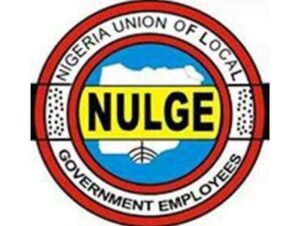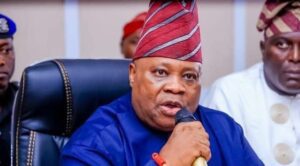
Lagos to unveil transport policy in May – Sanwo-Olu
The Governor of Lagos State, Mr Babajide Sanwo-Olu, says the Lagos State Transport Policy will be unveiled in May.
Sanwo-Olu said this at the unveiling of the Global Transport Policy Annual Transport Roundtable/Bilingual Magazine on Wednesday in Lagos.
The theme of the event was: “Transport Infrastructure and Strategic Policy Intervention: Building Blocks for economic Growth.”
Sanwo-Olu was represented at the event by the Commissioner for Transportation, Mr Oluwaseun Osiyemi.
The governor noted that the policy was put together to ensure a sustainable, efficient, and reliable transportation system that would attract investors and encourage public private partnership.
According to Sanwo-Olu, the policy document when fully operational will serve a number of functions.
“First, as a set of transport goals, objectives and strategies for the government and people of Lagos State. Second; as the basis for emerging regulations and legislations on transport and traffic development of the state.
“The Lagos State Transport Policy will address issues such as integration of all modes, inclusion of people with disability in the provision of transport infrastructure.
“Others are the encouragement of private participation in the provision of infrastructure and services, encouragement and inclusion of non-motorised transport infrastructure in on going road projects,” he said.
Sanwo-Olu, however, called for insightful discussions and exchange of ideas at the roundtable for economic growth and development.
“Everyone should seize this opportunity to harness collective wisdom, innovation, and collaboration to chart a course toward a more resilient, sustainable, and inclusive transport ecosystem.
“Together, let us strive to unlock the full potential of transport infrastructure and strategic policy intervention as the building blocks for economic growth, prosperity, and shared prosperity for all,” he said.
Also, Mr Segun Obayendo, President, Chartered Institute of Transport Administration (CIOTA), enjoined stakeholders in the sector to embrace professionalism.
“If the transport sector is professionalised, it will see to a new beacon and shape the future of the industry.
“We do not have a National Transport Policy and we can achieve this if we professionalise this sector and CIOTA is solidly behind the convener with their support,” he said.
Earlier, Dr Oluwasegun Musa, Chairman/Chief Consultant, GTP, said that development of robust transportation networks was not merely about connecting cities and regions.
Musa said that transportation networks must be built on sustainable economic growth, societal advancement, and global competitiveness.
He stressed the need for strategic policies designed to optimise transportation networks to ensure efficiency, sustainability, and inclusivity.
“Connectivity goes beyond geographical boundaries integrating different regions into cohesive economic units.
“Whether it be roads, pipeline, railways, airways, or maritime routes, the seamless interconnectivity of transport networks fosters trade, spurs investment, and promotes the exchange of knowledge and expertise.
“By investing in last-mile connectivity, we can ensure that the benefits of economic growth are shared by all segments of society.
“Therefore, our first building block is the establishment of a comprehensive, multimodal transport system that enhances connectivity within and beyond our borders, stretching to neighbouring countries to further amplify the benefits of the African Continental Free Trade Area (AfCFTA),” he said.
Musa called for the development of policies that reinforces the success of intermodal transport.
“The revitalisation of Nigeria’s transport infrastructure requires bold vision, decisive action, and unwavering commitment.
“By prioritising strategic policy intervention, we can lay the foundation for sustainable economic growth, job creation, and improved quality of life for all Nigerians,” he said.
He commended government’s commitment to infrastructure development, with the instituting of the National Integrated Infrastructure Master Plan, and the Presidential Infrastructure Development Fund for execution of critical infrastructure projects.
The highlight of the event was the unveiling of the Global Transport Policy magazine, a bilingual magazine, produced quarterly with authoritative trend-spotting and compelling cross-cutting analysis.




